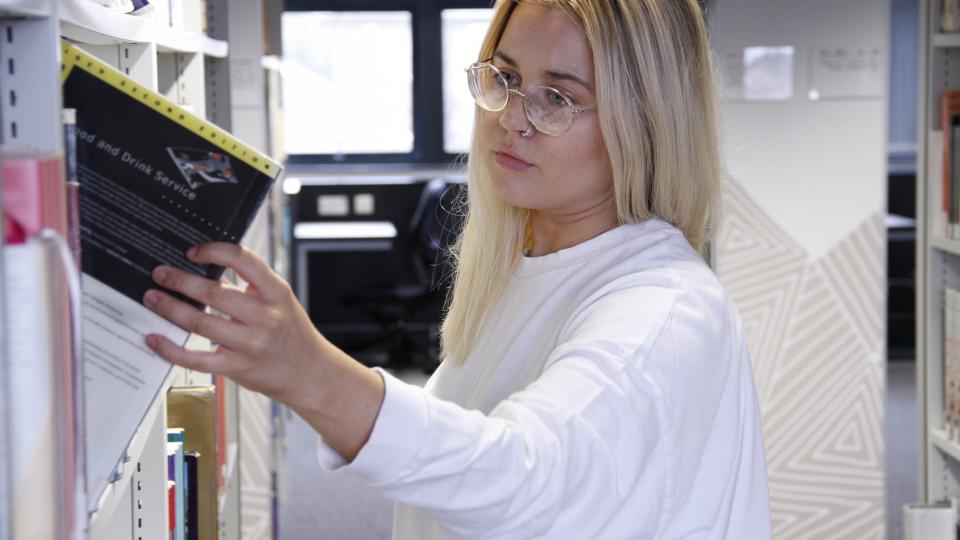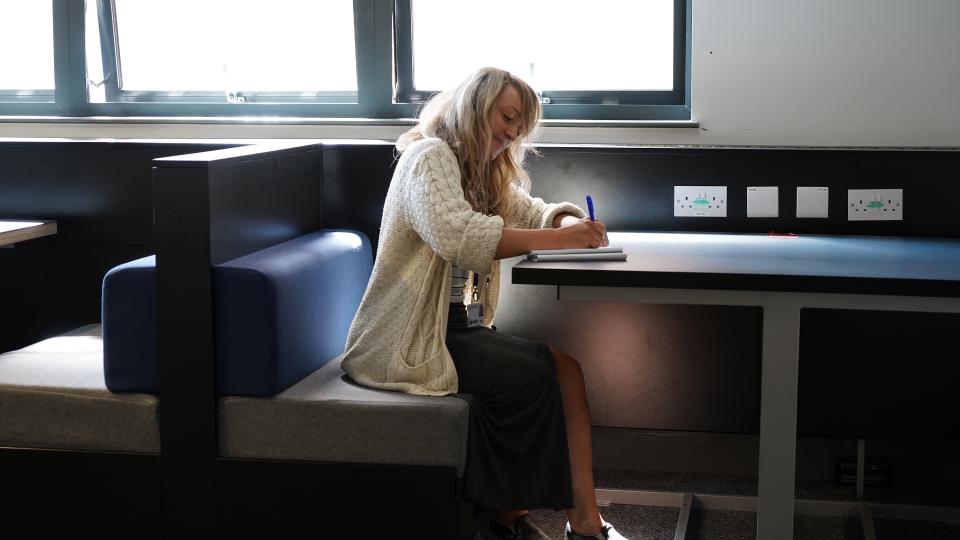
What is Open Research?
Intro/Jump links
This page describes Open Research principles and practices, how the Library helps and how you the researchers can help develop an Open Research culture.
Jump to each section of the page on:
Why should research be open?
Open Access to research papers, especially those that are based on public research funding, has been a worldwide ambition for many years. Research findings which might be developed into lifesaving policies or programmes of further research should be as widely available as possible and not hidden behind paywalls. But why should only the final outputs of research be made open in this way? Shouldn’t all parts of the research process be open, with increased visibility and the benefits that can bring? Open Research is the name given to such an ambition.
Open Research consists of:
Principles and practices that aim to make research more collaborative, impactful and transparent, through the communication of research processes and the dissemination of research outputs with as few restrictions as possible.
Open Research practices vary across disciplines, but fundamentally involve the sharing of research plans and the outputs from those plans, such as datasets, pre-prints and published papers, as quickly and completely as possible.
Such practices promote accessibility, transparency and rigour in each stage of the research lifecycle, generating more and better opportunities for collaboration, improved dissemination and knowledge transfer through the reuse of research outputs, and increased likelihood of the reproducibility of research findings.
-
How UNESCO and UKRI see it
UNESCO and the UK public research funding administrator UKRI amongst other organisations are at the forefront of promoting Open Research (sometimes referred to by the narrower term Open Science). UKRI explains:
Transparency, openness, verification and reproducibility are important features of research and innovation. Open research helps to support and uphold these features across the whole lifecycle of research – improving public value, research integrity, re-use and innovation."
The UNESCO Recommendation on Open Science also reminds us that:
Open science should not only foster enhanced sharing of scientific knowledge among scientific communities but also promote inclusion and exchange of scholarly knowledge from traditionally underrepresented or excluded groups (such as women, minorities, indigenous scholars, scholars from less-advantaged countries and low-resource languages) and contribute to reducing inequalities in access to scientific development"
Open Research practices
Open Research practices help increase visibility, transparency, collaboration and innovation.
A culture of Open Research can increase:
- researchers’ profiles and that of the university,
- the impact of their work,
- their reputation for competence and integrity,
- the possibilities of collaboration with researchers from other universities;
- the understanding of funder open access requirements and how they are likely to change in the future.
Practicing Open Research:
-
demonstrates your research follows robust procedures from the earliest stages;
-
helps other researchers reproduce and confirm results;
-
helps other researchers avoid repeating work, taking its significance into consideration as they move forward in the field and develop new research ideas;
-
ensures a researcher retains acknowledgement for their work in the long term through appropriate copyrighting;
-
enables more rapid dissemination and impact, helping to raise a researcher’s profile as a significant player in their field;
-
extends the reach and impact of research in the wider society outside HE;
-
increases opportunities for collaboration by interesting other potential research partners and stakeholders in what the researcher is trying to achieve.
What does Open Research involve?
Practising Open Research involves making each stage of your research journey and its outputs as visible and accessible as possible and planning carefully how you are going to do so.
If you wish to pursue any of the 7 steps, there is more detail on other pages (follow the relevant links). You can also obtain help and further information from the Open Research team at each stage.
-
7 Open Research steps
- ‘Pre-register' your finalised research design, either by uploading it to the UWL repository or elsewhere. Consider publishing your finalised design as a ‘registered report’ in a relevant journal. Journals which will accept Registered Reports will agree to publish a final paper, with ‘significant’ outcomes or not, if you follow the plan. Find out more on the pre-registration of research plans, pre-prints and open peer review page.
- Complete a Data Management Plan which includes how you are going to make your data sets available through a data repository, confidentiality permitting. Visit the managing your data page for more information.
- Make sure your datasets are structured and labelled so that they are ‘Findable, Accessible, Interoperable and Reuseable’.
- Structure your papers so that titles and abstracts are illuminating, and keywords are prominent thereby making your paper easily discoverable through databases.
- Consider uploading a pre-print (a paper yet to be peer-reviewed) to a pre-print server and asking for feedback.
- Make sure your published papers are open access either through the UWL repository or through the expanding opportunities to make your paper open ‘in situ’ in the journal’s own website. Visit the making your published papers Open Access page for more information.
- Engage with Open Peer Review and teach Open Research practices if you are a teacher or research supervisor.
How the library helps
The Open Research team is available to support you in all areas of Open Research and Open Access.
- Dr Marc Forster – Open Research manager
We can help facilitate your open research activities, including making research plans and outputs open access in ways appropriate to funder requirements and REF regulations.
We can also advise on how to effectively communicate your research findings to the wider research community and the public at large, and help you interpret the impact of your research beyond ‘citation’ and ‘impact factor’.
What you can do to help
As a researcher, you can have a role in promoting open research practices within the university and your wider professional and research communities. There are many ways that you can help.
-
Open Research champion
Are you willing to champion Open Research practices in your department or team? We can support with outreach resources and seminars. Get in touch with the Open Research team.
-
Contribute to Open Research in your day to day work as an academic
There are many ways in your day-to-day work as an academic you can promote and develop Open Research practices. Here are a few examples:
- Engage with open peer review. You can do this either by submitting to journals/publishers that operate an open peer review process or by reviewing for them and posting your reviews online. More details are in the Open Peer Review section.
- Teach Open Research. If you are responsible for teaching, introduce your students – undergraduates as well as graduates – to the concepts and practices of Open Research. For example: explain why Open Access, and data/code sharing are important; use open access papers and data in your teaching and exercises; ask students undertaking experimental projects to pre-register their study designs; teach the significance of the reproducibility, or otherwise, of research findings by setting an assignment to replicate a published study; run an exercise in which students review papers and publish the reviews online.
- Promote Open Research within your discipline. If you sit on the editorial board of a journal, consider raising these issues for discussion if policies have not already been debated or adopted, or especially if policies have previously been adopted that are out of sync with Open Research. Eg introducing an open peer review submission system and preprint-friendly policy; offering a registered report option; converting the journal to a fully Open Access (SPARC website) or at least to a hybrid Open Access model (some, but not all of the papers of each issue are open). Use your public profile and involvement with research stakeholders (such as learned societies) to promote Open Research activities and policies in the wider academic community.
-
Ethics in research and publication
UK Research and Innovation’s definition of research integrity summarises the ethical standards that researchers should apply to their work:
High integrity in research is the result of upholding the values of honesty, rigour, transparency and open communication, care, and respect for those involved in research. It supports accountability for a positive research environment."
- UKRI, 2024
Maintaining these ethics and standards is essential, not least given declining levels of trust in scientific publishing and changing perceptions of academic integrity. Misinformation and misconduct are rife, and the problems have been exacerbated by the rise of Artificial Intelligence in academia. Increasingly sophisticated AI tools are utilised by the paper-mill industry to sell generic manuscripts and produce plagiarised content that scrapes excerpts from legitimate pieces of research.
In recent years, Open Research practices have become a way of addressing some of these problems by, for instance, increasing transparency around the research process, including the collection and storage of data. However, these and other issues remain to the fore and must continue to be addressed.
- Watch the what is Open Research YouTube video for more information.
To ensure you are following a high standard of integrity, you should:
- Never fabricate or manipulate data. Using a Data Management Plan (DMP) can help you to properly record and account for your data. (DMPs can be uploaded onto the UWL repository, for more information visit the managing your data page).
- Properly cite and acknowledge other works. This will help you to avoid plagiarism and help to highlight your sources for others to refer to.
- Make your work available and accessible as soon as possible via the UWL repository.
Good practice in Open Research amounts to transparency in methods and data collection, communicating findings accurately and honestly and properly acknowledging the works of others. For any more guidance, the Open Research team is always available to help.
-
EDI in Open Research
We want to cultivate an excellent research culture at UWL. Open Research is central to our vision, and as part of that, we want to ensure that everyone in our research community can produce work in an inclusive, supportive, and equitable environment.
What is EDI?
EDI (equality, diversity and inclusion) interventions seek to address systematic underrepresentation. The development organisation Diversity for Impact provides some excellent summaries of the terms discussed which you can access on the Diversity for Social Impact website.
In a research context, this could look like unequal representation in leadership, grant allocations or citations. By promoting inclusion, we can help to reduce the bias and discrimination that individuals or groups might face in academia when trying to make their research open and accessible to all. UKRI (UK Research and Innovation) published an extensive report on EDI in the context of research and innovation. It provides a summary of the significant issues and can be accessed on the Diversity for Social Impact website.
Like Open Research practices, EDI helps us to build a more diverse and supportive community that utilises knowledge from a range of backgrounds and experiences. This helps our knowledge output at UWL to be better representative of actual society, break down social barriers, and better address global challenges.
EDI universally applies to those who identify as having any of the nine protected characteristics. Under the Equality Act 2010, the nine protected characteristics are: age, disability, gender reassignment, marriage and civil partnership, pregnancy and maternity, race, religion and belief, sex, and sexual orientation. However, this list of characteristics is not definitive. For a comprehensive definition of EDI terms, the government of Canada has a guide on Equity, Diversity and Inclusion Terminology put together by a dedicated, interdepartmental committee.
What can be done in Open Research to promote EDI?
There is much work to be done by institutions and research organisations to develop specific strategies and priority areas that address clear equity gaps. UWL produces annual reports on EDI to communicate policy transparently and openly and proactively share data, evidence, and findings. For more information, visit our equality, diversity, and safeguarding page.
Individuals can adopt open scholarship practices such as publishing data, pre-prints, and notebooks online from the outset of their research journey to widen access and participation. It is also important that accessible resources such as open-source software, community science networks and open educational resources are well used, developed, and promoted. Lastly, disseminating work as widely as possible through Open Access journals, repositories and academic social networking sites helps to reduce barriers to access for all.
The best research environment is one that is conducive to supporting mutual growth through inclusion, access, and encouragement. Open research practices and EDI are complementary approaches to better addressing the global issues affecting us now and into the future.
Get in touch
Open Research team
Get in touch with Dr Marc Forster from the Open Research team for help and advice at open.research@uwl.ac.uk.
Library team
In-person: Visit the Help Zone, ground floor at our Ealing & Reading sites. Find out the library opening hours.
Email us: library@uwl.ac.uk
Telephone: Ealing: 020 8231 2405 / Reading: 020 8209 4434 (Mon-Fri 9am-5pm)
Need help? Chat with us.







